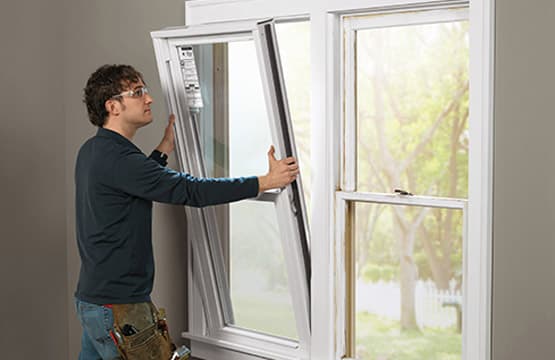Glass is a common material in our homes, used for everything from windows to doors to table tops. While it’s durable, glass can get damaged in various ways. It is possible to maintain the safety and appearance of your home by understanding the types of glass damage and how to address them.
Chips
A chip is a small piece of glass that has broken away from the surface. They often occur when something hits the glass with force. For small chips, you can use a glass repair kit. These kits usually contain a resin that fills the chipped area. Here’s a basic process:
- Clean the area around the chip.
- Apply the resin according to the kit instructions.
- Let it cure, often using the provided UV light.
- Scrape off excess resin with a razor blade.
- For larger chips or if you’re unsure, it’s best to consult a professional.
Cracks
Cracks are lines that run across the glass. They can be caused by impact, stress, or temperature changes. Cracks can spread over time, weakening the glass. Small cracks (less than 6 inches) can sometimes be repaired at home:
- Clean the crack and surrounding area.
- Apply glass repair resin along the crack.
- Use a tool to push the resin into the crack.
- Let it cure and remove excess.
Larger cracks often require professional help. In many cases, it’s safer and more cost-effective to replace the glass entirely.
Scratches
Scratches are surface damage to the glass. Abrasive materials, pets, or accidents can cause them. For light scratches:
- Clean the area thoroughly.
- Use a glass scratch repair kit or a mixture of cerium oxide and water.
- Apply the mixture and buff gently with a soft cloth.
- Repeat if necessary.
Deep scratches may need professional attention. Glass Repair Canberra experts has specialized tools for dealing with tough scratches.
Thermal breaks
Thermal breaks happen when glass expands and contracts due to temperature changes. Thermal breaks usually require glass replacement:
- Remove the damaged glass carefully.
- Install new glass designed to handle temperature fluctuations better.
- Ensure proper installation to prevent future breaks.
- To prevent thermal breaks, avoid exposing glass to extreme temperature differences.
Regular maintenance to prevent damage
Preventing glass damage is often easier than repairing it. Here are some maintenance tips:
- Clean glass regularly with appropriate cleaners.
- Avoid using abrasive materials on glass surfaces.
- Inspect glass periodically for small damages that could worsen.
- Preventing further damage requires immediate attention to any issues.
When to call a professional
While some minor glass repairs can be DIY projects, many types of damage require professional attention. Consider calling a professional when:
- The damage is large or complex.
- You’re dealing with speciality glass (like tempered or laminated).
- The glass is in a critical area (like a front door or large window).
- You’re unsure about the extent of the damage or how to fix it safely.
In order to handle glass repairs safely and effectively, professionals have the right tools, experience, and knowledge.
Conclusion
Maintaining your home’s glass features can be made easier by understanding the different types of damage and how to deal with them. While some minor repairs can be done at home, many types of glass damage require professional attention. Always prioritize safety when dealing with damaged glass, and don’t hesitate to call a professional when in doubt. It is possible to prevent more serious and expensive glass issues in the future through regular maintenance and prompt attention to small issues.


Comments are closed.